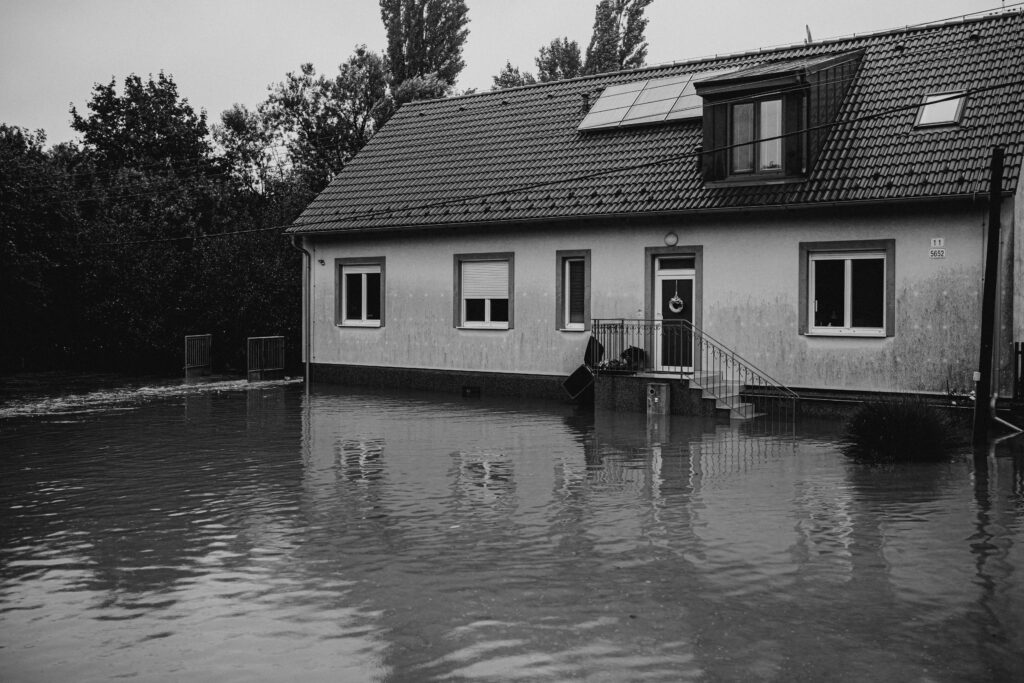Introduction
Flood Insurance is a specific type of policy meant to shield homeowners from flooding-related water damage. Flooded insurance may seem like a needless expense, but it is essential in high-risk areas and can pay for significant post-flood repair costs. But is it worthwhile? Let’s examine the advantages, expenses, and varieties of flood insurance coverage to discover how it can provide you with financial stability and peace of mind.
1. Comprehending Flood Insurance: Its Coverage
Specifically, flooded insurance covers flood-related water damage, something that regular homeowners insurance does not.
Typical coverages for flood insurance include:
- Repairs to the foundation, walls, and floors are included in structural damage.
- Utility and appliance protection: Preserves vital systems including HVAC, plumbing, and electricity.
- Personal belongings: Contains electronics, furniture, and other itmes that belong to the individual.
External Resource: Go to the FEMA Flood Insurance Page for complete information on individual coverage.
2. Is Flood Insurance Required?
For homeowners with federally backed mortgages who live in high-risk flooded zones, flooded insurance is mandatory. Even if it’s not required, it can still be a good idea to get flooded insurance in places with low to moderate ritnsk. Unpredictable floods can occur in nearly any location, irrespective of past flood trends, as recent experiences have demonstrated.
3. Advantages of Flood Insurance
The Following are some major advantages of flood insurance:
- Protection of finances: Flood can result in damage worth thousands of dollars, and insurance can drastically lower out-of-pocket expenses.
- Peace of Mind: Especially during hurricane seasons, it might be comforting to know that you are protected.
- Increased Property Value: If you live in a location that flooded frequently, have flood insurance can help attract buyers to your house.
4. Elements That Impact the Price of Flooded Insurance
Flood insurance costs are influenced by a number of factors, including:
- Location: Premiums are greater for homes in flooded-prone areas.
- Age of the Building: Older structures may be more susceptible to water damage.
- Coverage Amount: Higher premiums are associated with higher coverage limits.
Homeowners can make well-informed decisions regarding coverage levels and expenses by being aware of these variables.
5. The Calculation of Flood Insurance Rates
The exact flooded risk of your home, as identified by FEMA flooded maps, determines the cost of flooded insurance. These maps use terrain, weather patterns, and historical data to identify flood zones. FEMA’s most recent method, risk rating 2.0, more precisely determines rates by taking into account each property’s particular features.

6. Which is Better, Private Flood Insurance or NFIP?
Homeowners usually have two choices when it comes to flood insurance: private insurers or the National Flood Insurance Program (NFIP). Here’s a brief analogy:
- NFIP Flood Insurance: FEMA overseed NFIP Flooded Insurance, which offers fixed rate but has coverage caps of up to $250,000 for buildings and $100,000 for goods.
- Private flood insurance: Might vary in cost depending on the state of market, but it frequently offers greater coverage limits and flexibility.
7. Frequently Held Myths Regarding Flood Insurance
- Flooded Insurance is a distinct policy: Homeowners insurance does not cover flooding, despite what many people believe.
- Flooded insurance is required only in coastal areas: Flooding can happen inland and is frequently unanticipated.
- Flooded coverage is too pricey: Affordable choices are available, despite cost variations, particularly for residences located in moderate-risk locations.
8. Advice on Puchasing Flood Insurance
- To obtain the best rates: Compare policies offered by private insurance and NFIP.
- Recognize Flood Zones: Understanding the flood zone of your house might help you plan for expenses.
- Purchase Early: Before the rainy season, in particular, make plans many flood policies have a 30-day waiting time.
9. When Does Flood Insurance Make Sense?
Generally speaking, flooded insurance is worthwhile if:
- Your area is prone to flooding: Damage is more likely to occur in high-risk regions, even if they are not necessary.
- Recent weather patterns have changed in your area: Since unpredictable weather is becoming more frequent, think about getting coverage as a preventative precaution.
- You wish to keep your investment safe: A layer of protection against the financial devastation that floods can cause is provided by flooded insurance.
Internal Link: Learn more about your home with Homeowners Insurance Essentials.
Conclusion
Homeowners in flooded-prone areas can benefit greatly from flooded insruance, despite the fact that it may seem like an additional cost. Flooded insurance gives you financial protection and peace of mind when nature strikes without warning because it can cover significant damage costs and preserve the value of your house. Consider the advantages, assess your level of risk, and determine whether flooded insurance is a wise for your house.




0 Comments